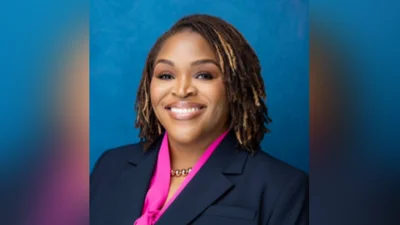Morgan Rodman is now the executive director of the White House Council on Native American Affairs (WHCNAA), the same position he held during the Obama administration.
The Biden-Harris administration announced Rodman's selection in recent a press release.
“It is an honor to serve in this role once again,” Rodman said in a statement. “Under the leadership of Secretary of the Interior [Deb] Haaland, we have an opportunity to build on the work we began during the Obama-Biden administration and center the voices of Tribal communities as we advance our work on key issues such as climate change, Tribal homelands and treaties, and economic and clean energy development.”
Rodman hails from Oklahoma and is a member of the Cherokee Nation and Osage Nation. He is a graduate of Harvard University and the University of Arizona School of Law.
“The White House Council on Native American Affairs represents an important piece of the administration’s commitment to Tribal Nations,” Haaland, who serves as Chair of the WHCNAA, said in a statement. “Morgan’s breadth of experience and previous leadership in this role will help him once again successfully lead the administration’s all-of-government approach to strengthening our nation-to-nation relationship with Tribal governments.”
For the past two years Rodman has held the role of Acting Director of the Indian Affairs Office of Indian Economic Development.
Now he will once again work for the WHCNAA, an interagency council that includes leaders from across the federal government. The council, which was created with a 2013 executive order, aims to provide improved coordination of federal programs and the use of resources available to Tribal communities, according to the Department of the Interior website.
“The White House Council on Native American Affairs plays an important role in the Biden-Harris Administration, representing an all of government approach to Native issues,” said Domestic Policy Council Director, Susan Rice, in a statement. “Having a director with Rodman’s deep experience will elevate the work of the Council to address longstanding inequities within Indian Country.”









